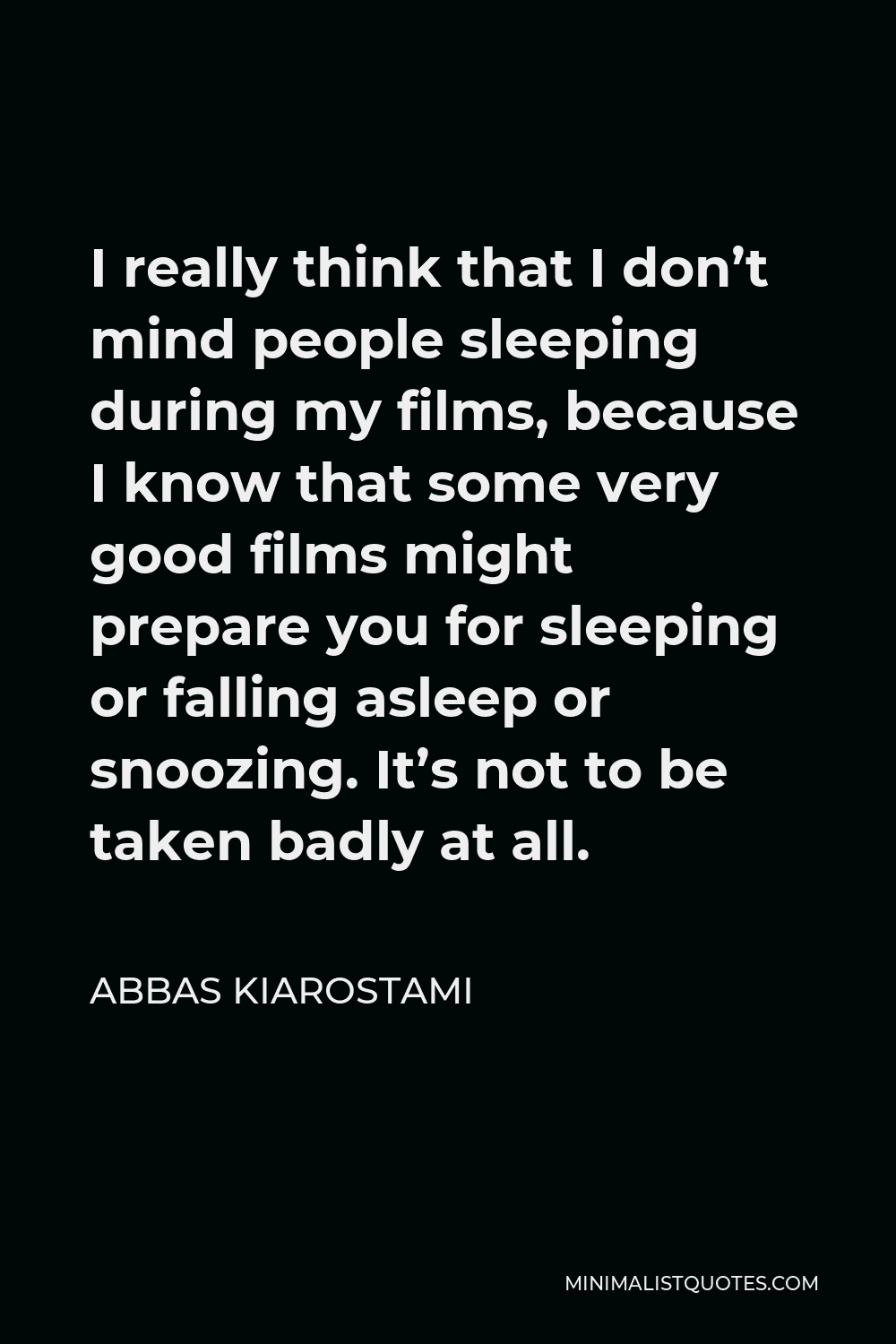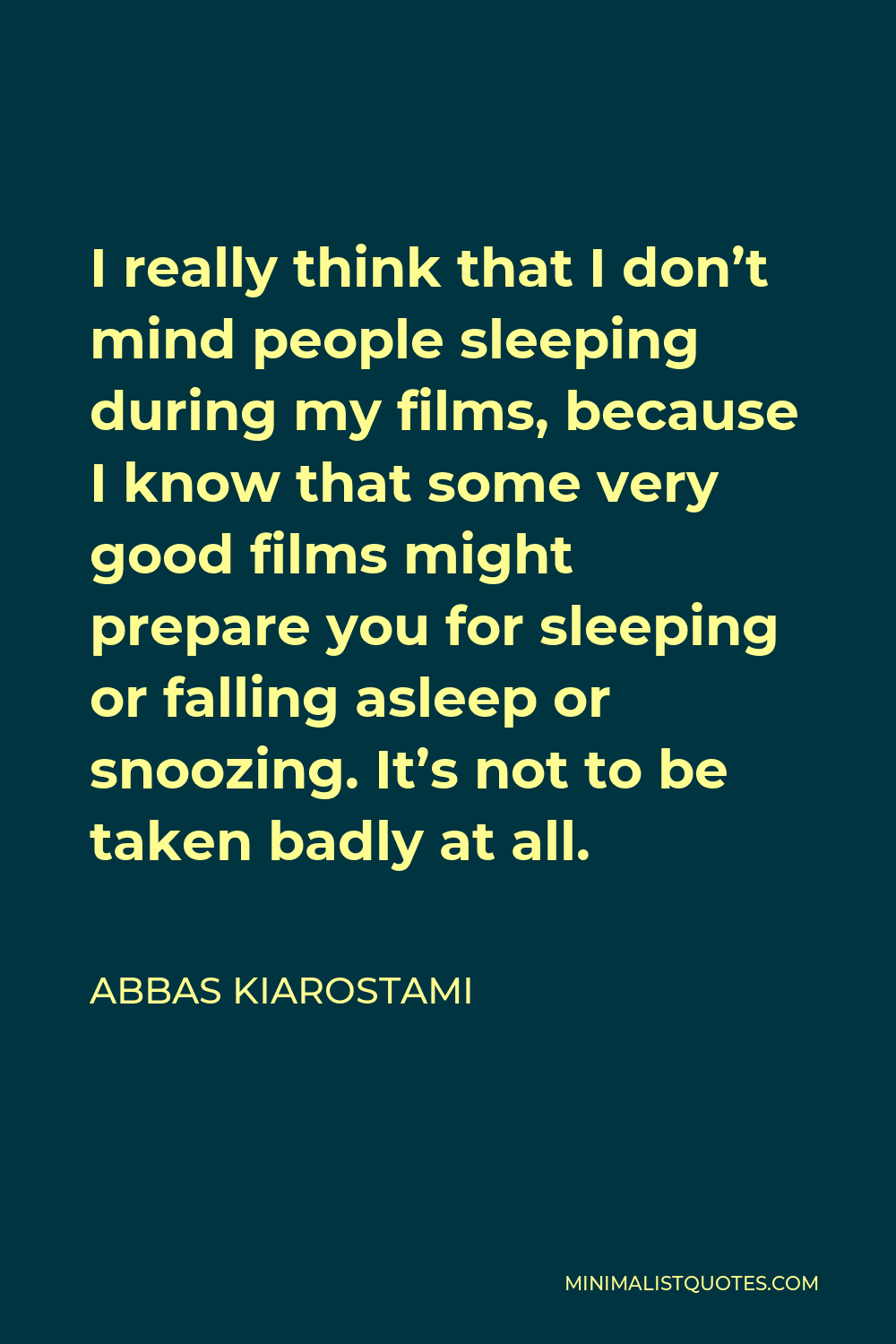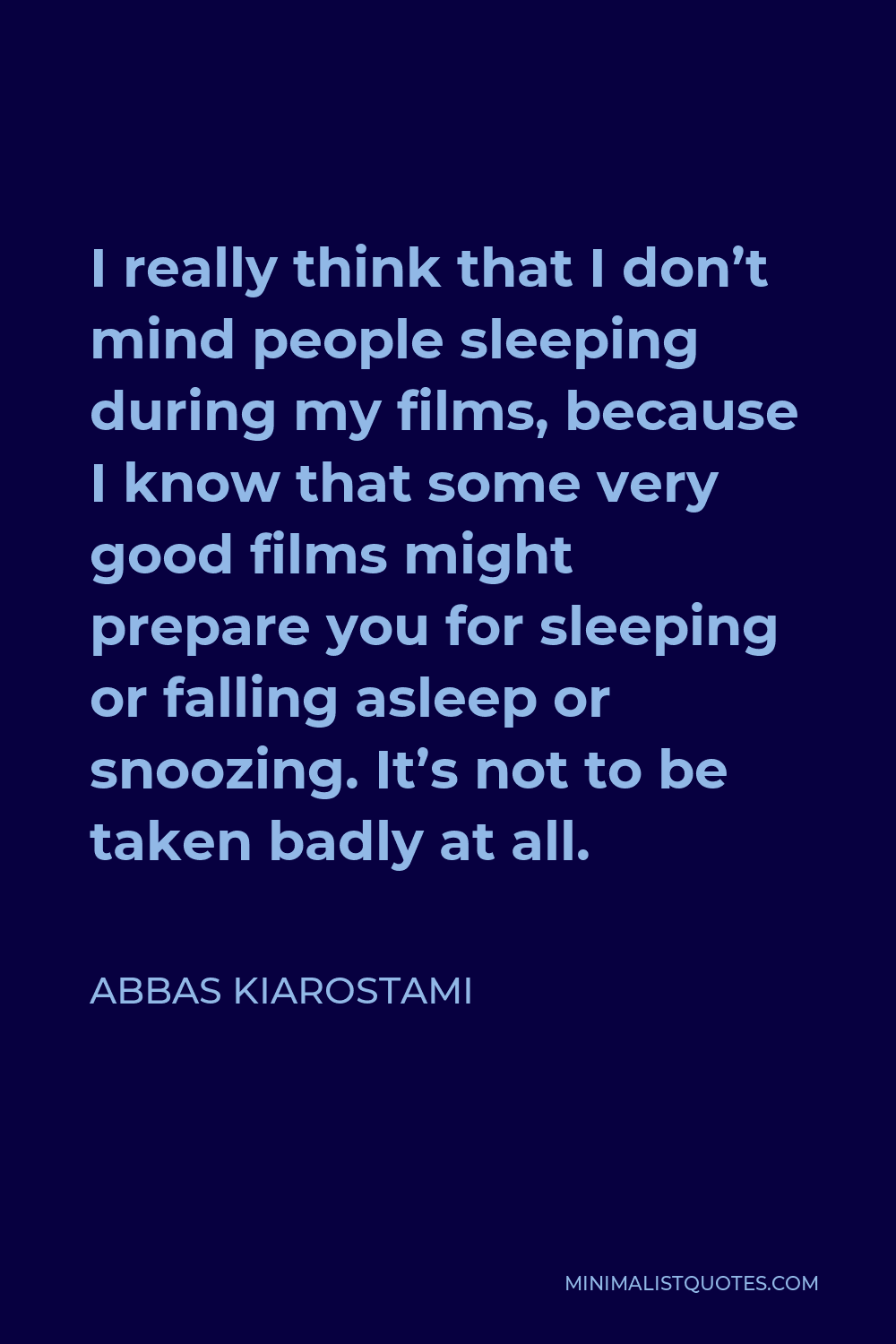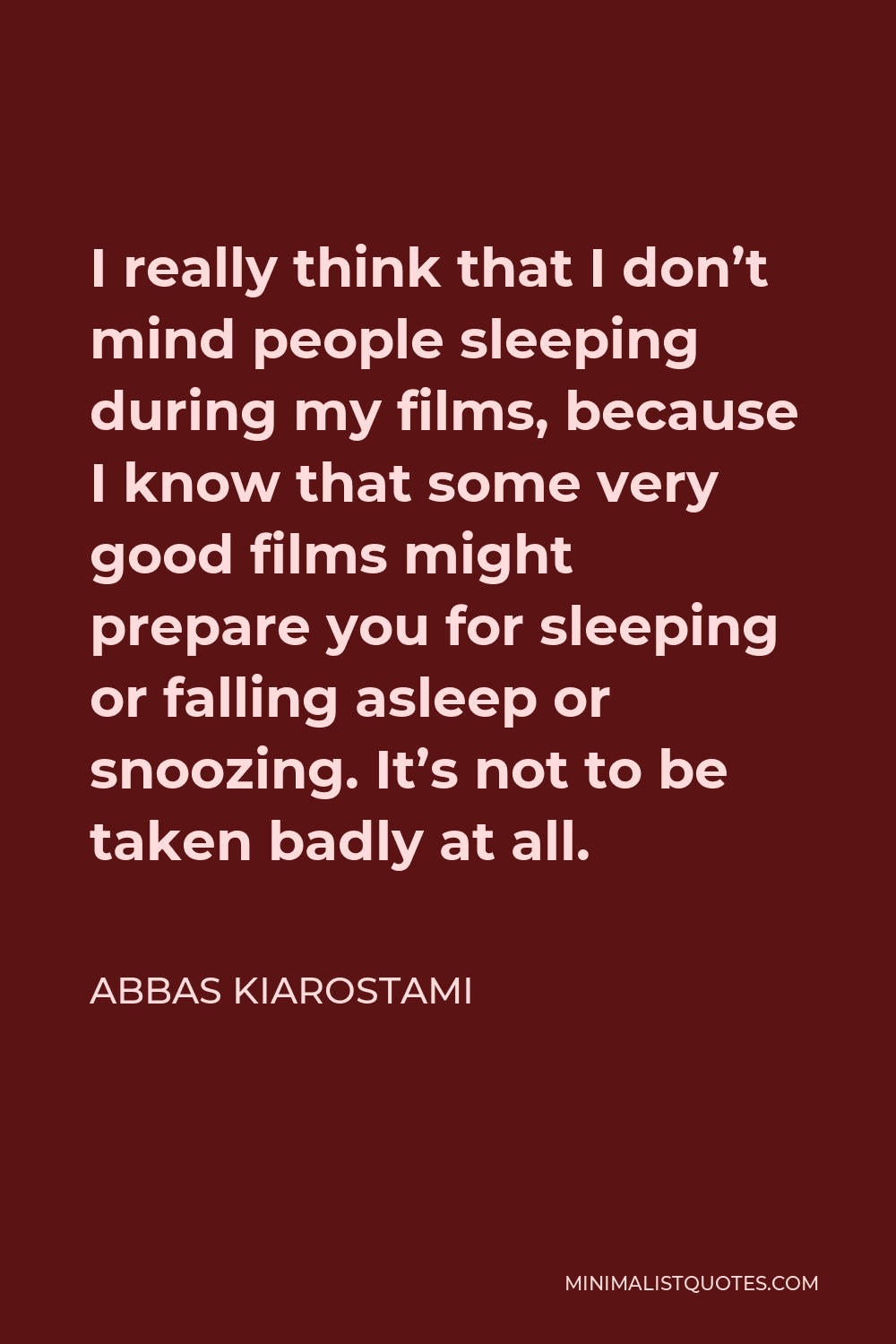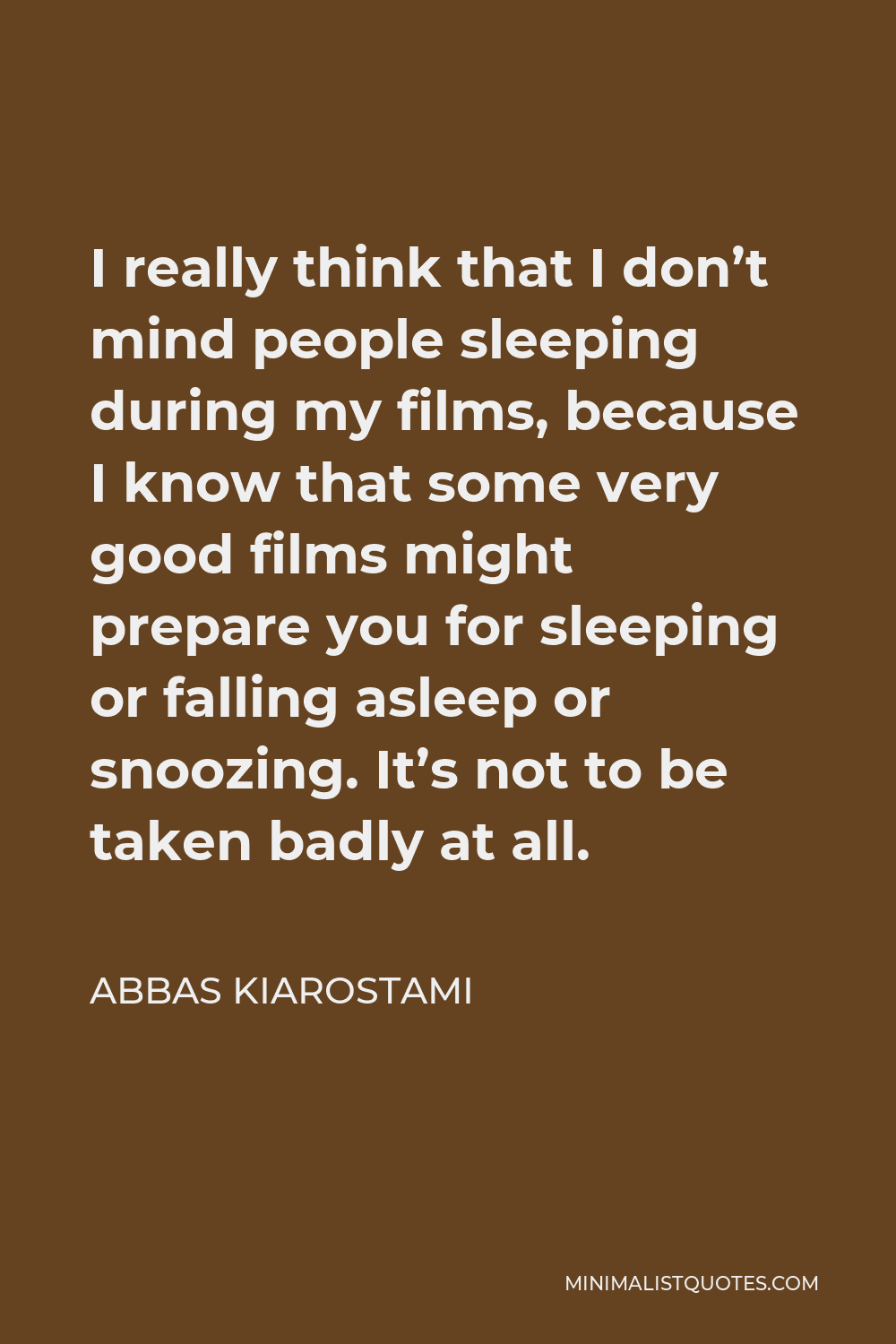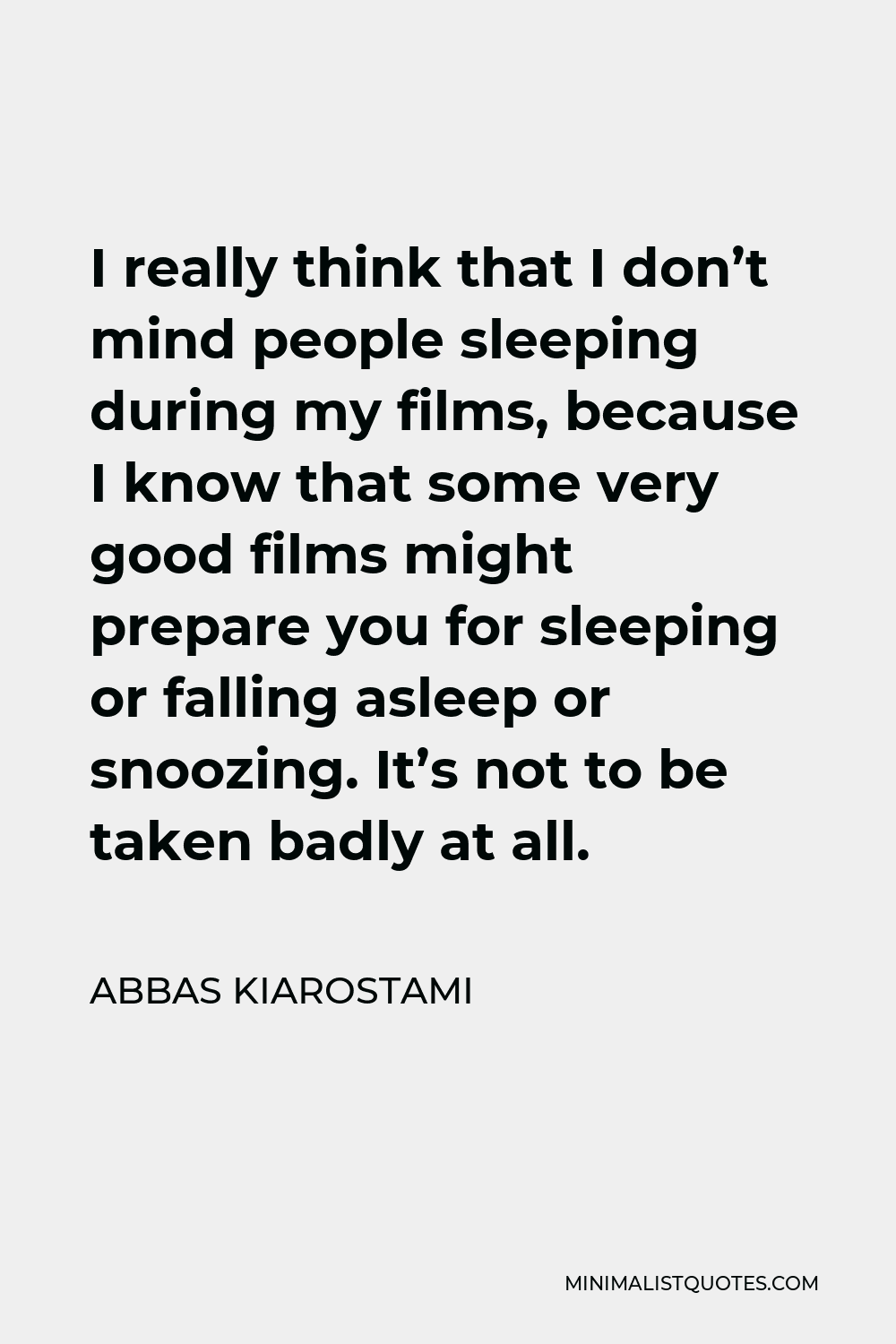The digital camera has given me total freedom and a different way of filming.
ABBAS KIAROSTAMII really think that I don’t mind people sleeping during my films, because I know that some very good films might prepare you for sleeping or falling asleep or snoozing. It’s not to be taken badly at all.
More Abbas Kiarostami Quotes
-





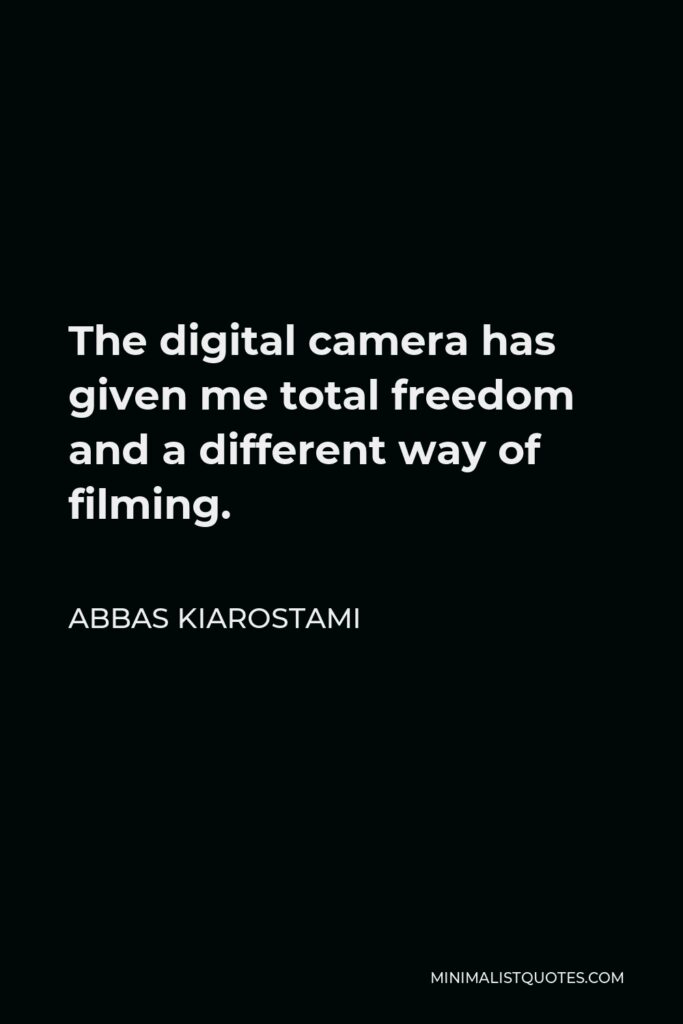

-





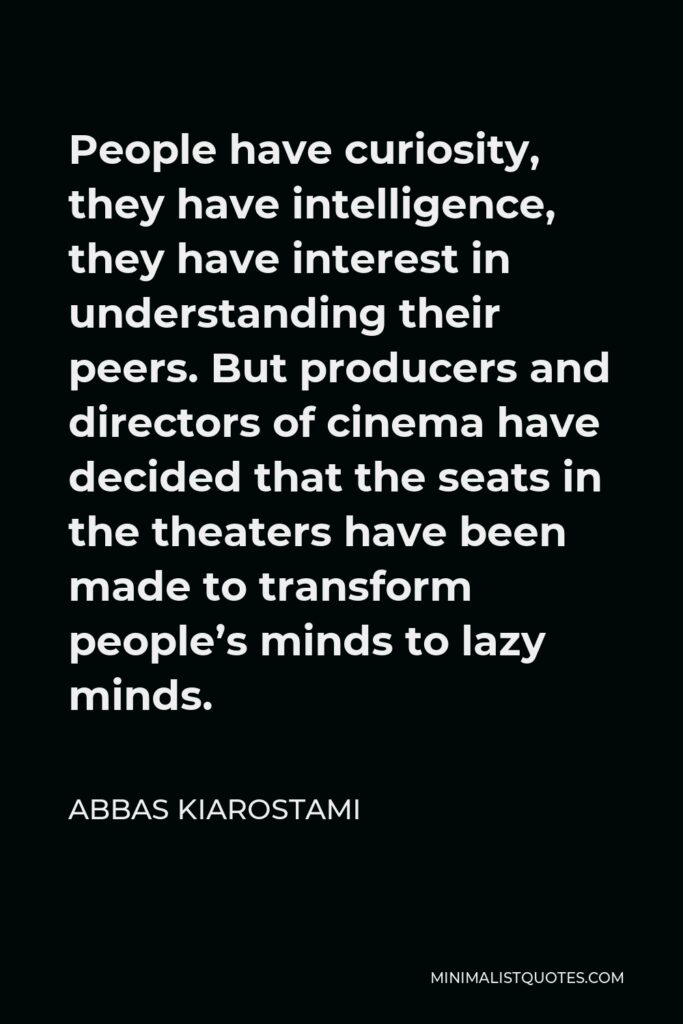

People have curiosity, they have intelligence, they have interest in understanding their peers. But producers and directors of cinema have decided that the seats in the theaters have been made to transform people’s minds to lazy minds.
ABBAS KIAROSTAMI -





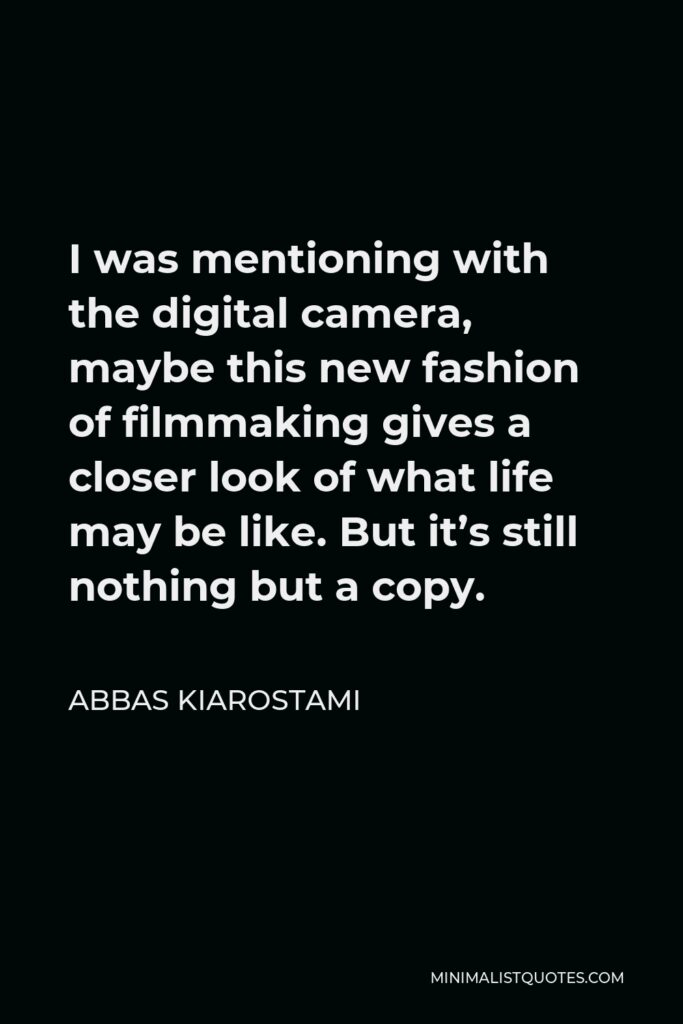

I was mentioning with the digital camera, maybe this new fashion of filmmaking gives a closer look of what life may be like. But it’s still nothing but a copy.
ABBAS KIAROSTAMI -





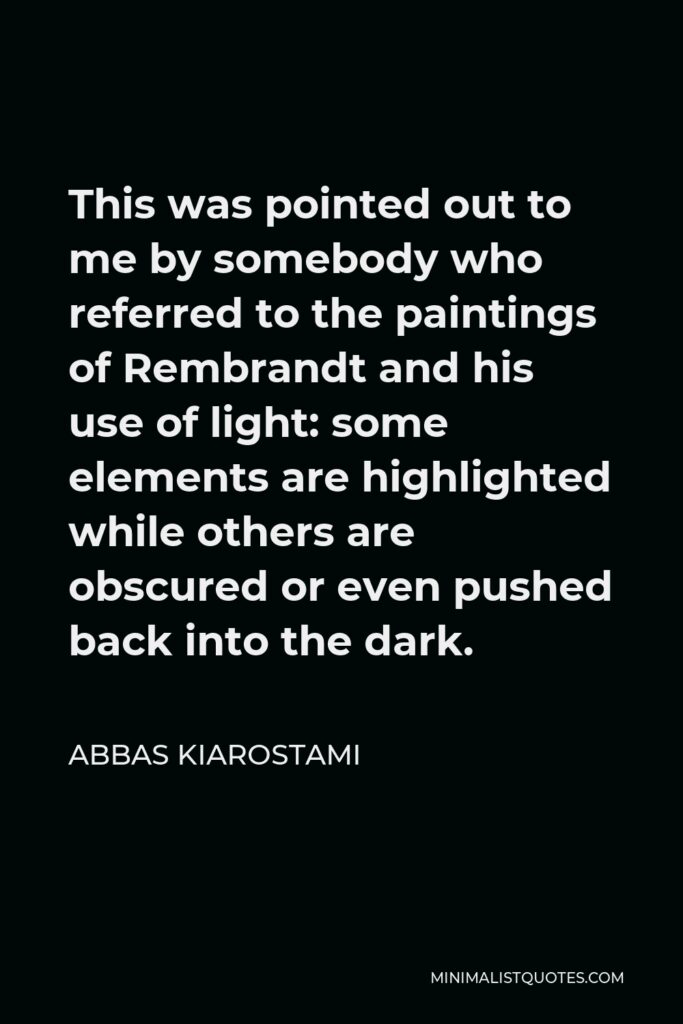

This was pointed out to me by somebody who referred to the paintings of Rembrandt and his use of light: some elements are highlighted while others are obscured or even pushed back into the dark.
ABBAS KIAROSTAMI -





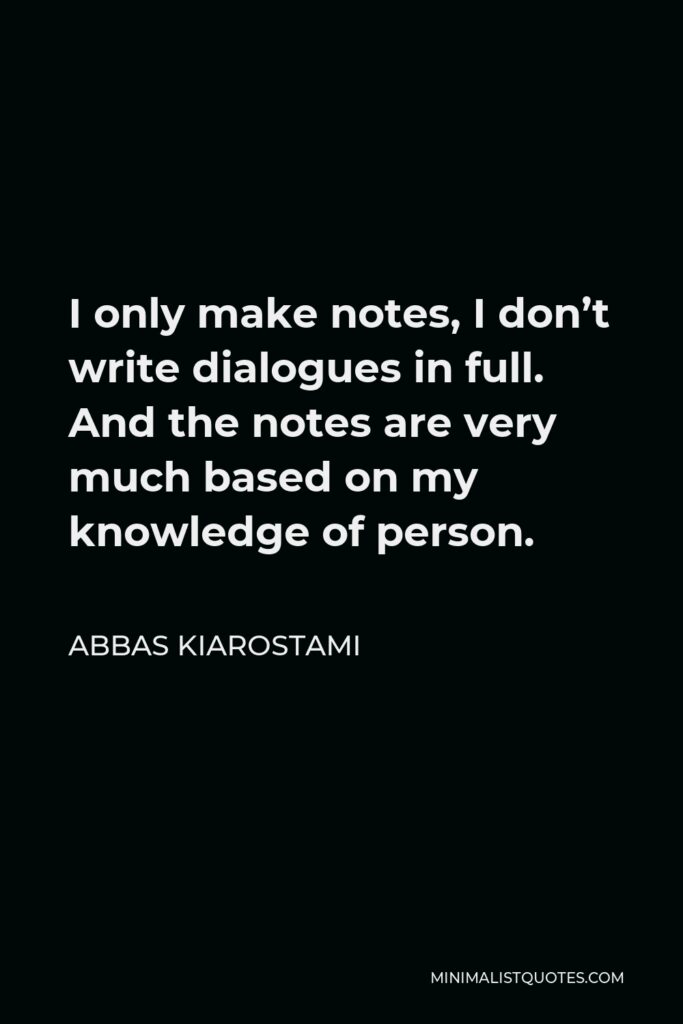

I only make notes, I don’t write dialogues in full. And the notes are very much based on my knowledge of person.
ABBAS KIAROSTAMI -





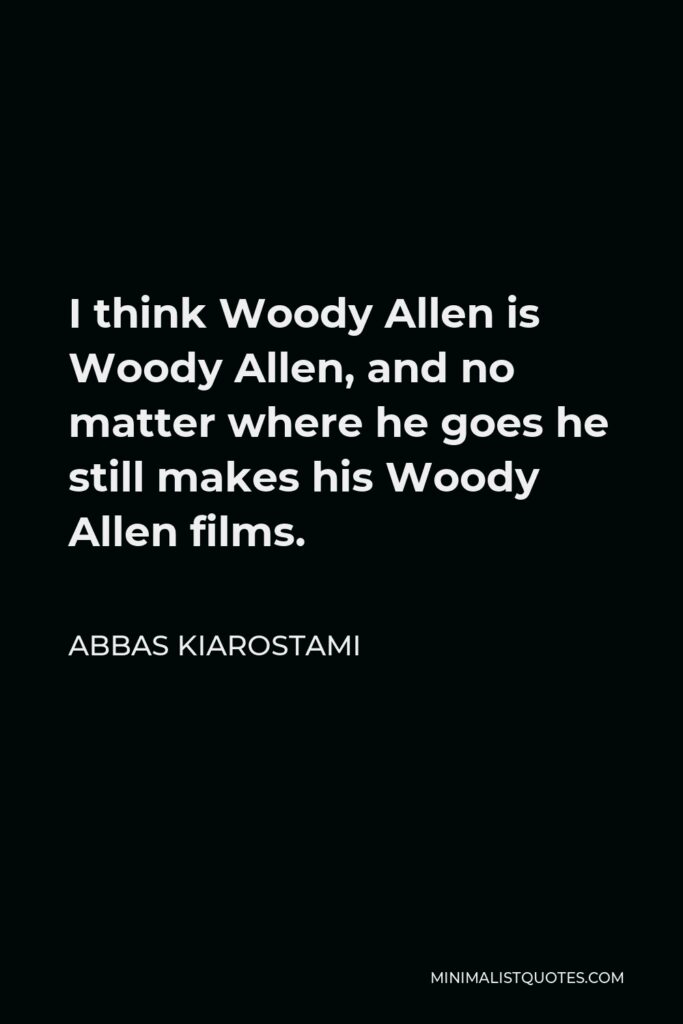

I think Woody Allen is Woody Allen, and no matter where he goes he still makes his Woody Allen films.
ABBAS KIAROSTAMI -





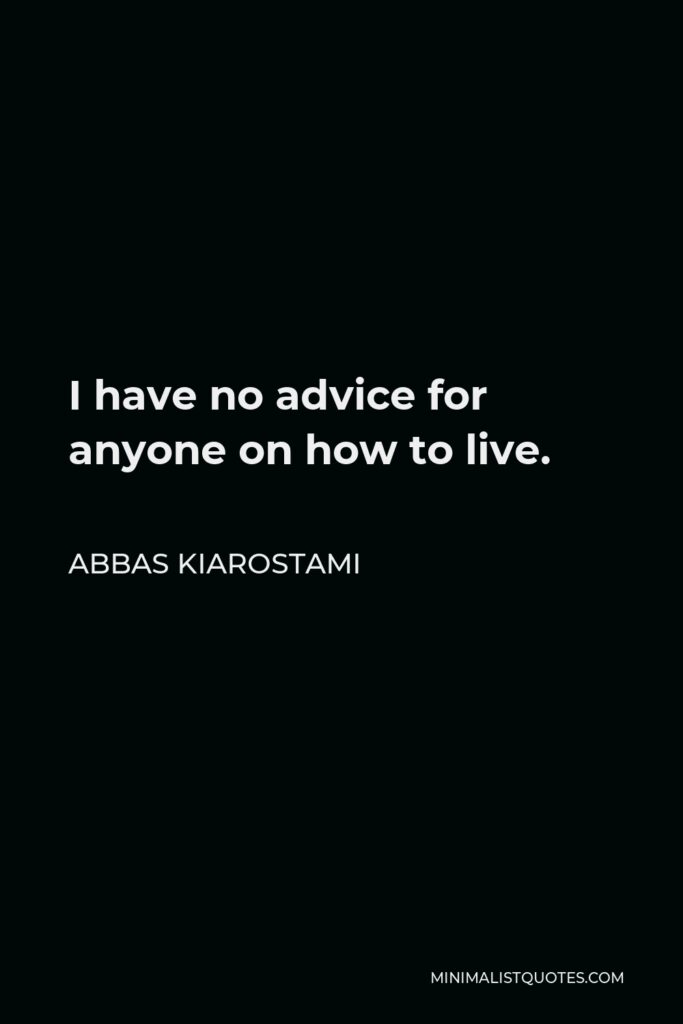

I have no advice for anyone on how to live.
ABBAS KIAROSTAMI -





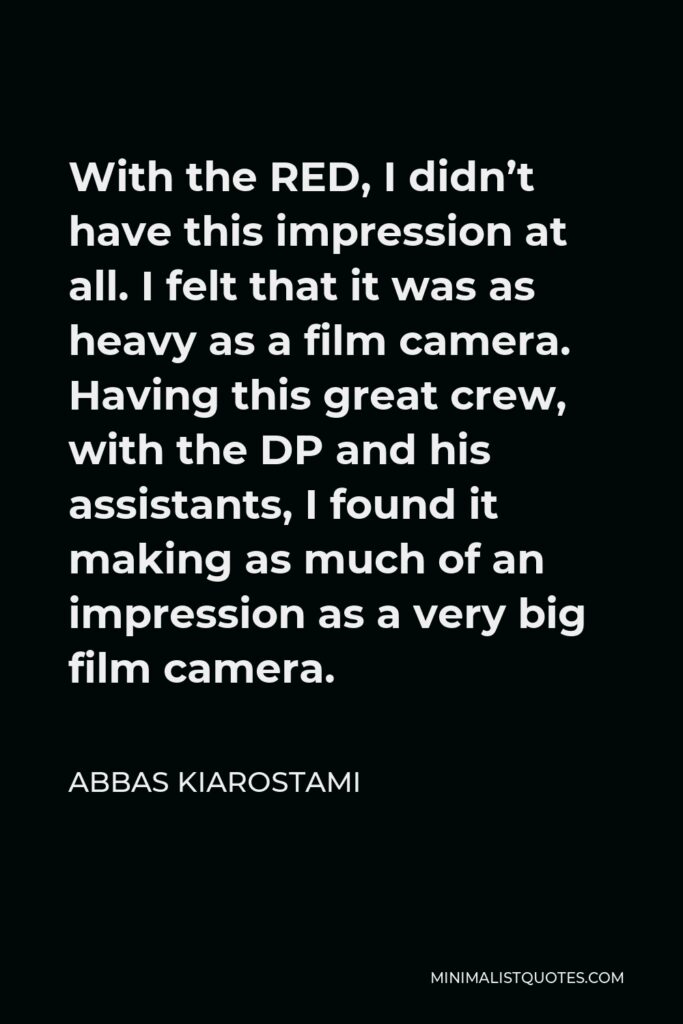

With the RED, I didn’t have this impression at all. I felt that it was as heavy as a film camera. Having this great crew, with the DP and his assistants, I found it making as much of an impression as a very big film camera.
ABBAS KIAROSTAMI -





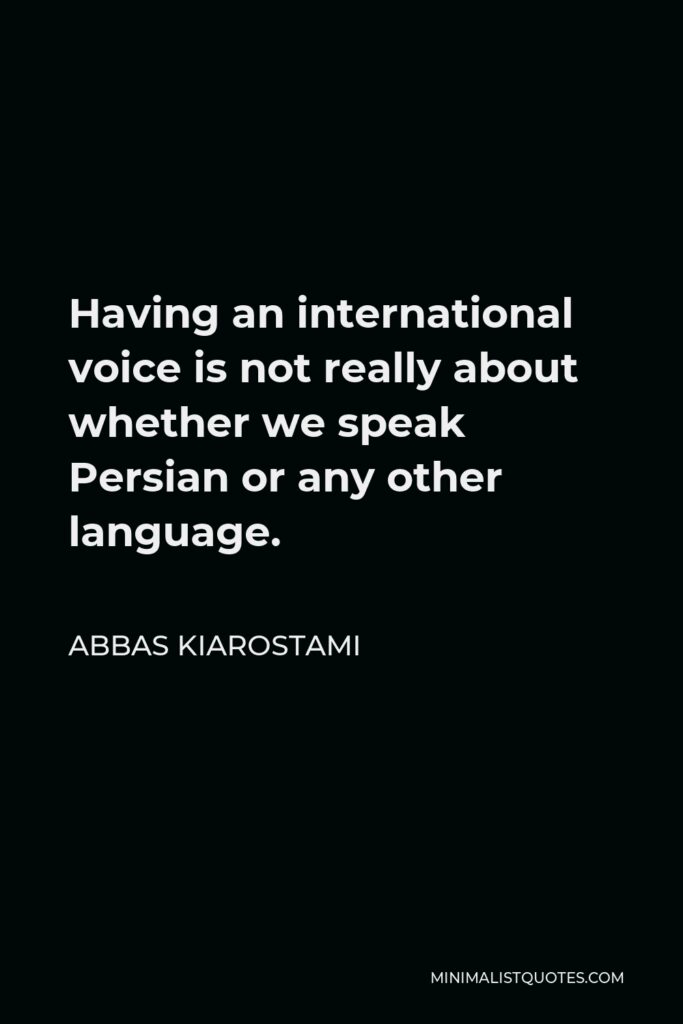

Having an international voice is not really about whether we speak Persian or any other language.
ABBAS KIAROSTAMI -





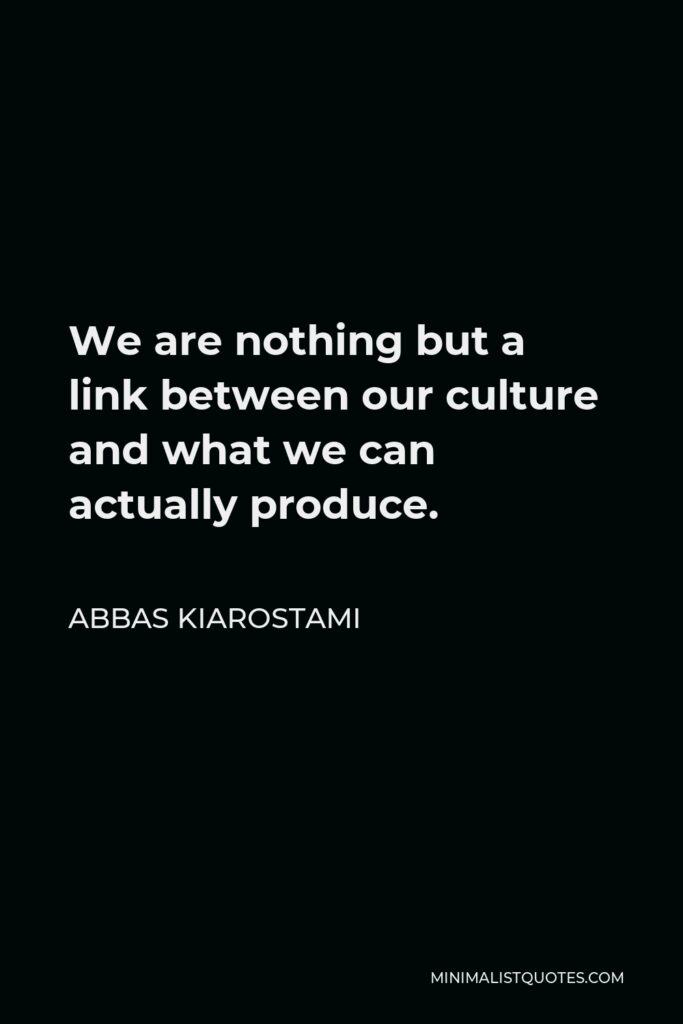

We are nothing but a link between our culture and what we can actually produce.
ABBAS KIAROSTAMI -





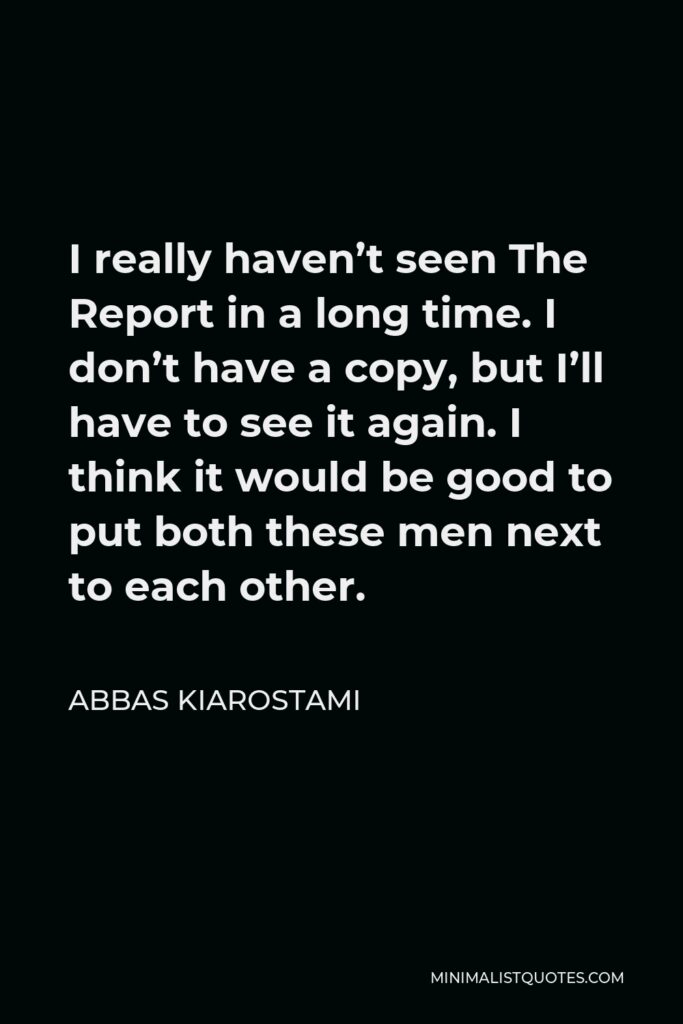

I really haven’t seen The Report in a long time. I don’t have a copy, but I’ll have to see it again. I think it would be good to put both these men next to each other.
ABBAS KIAROSTAMI -





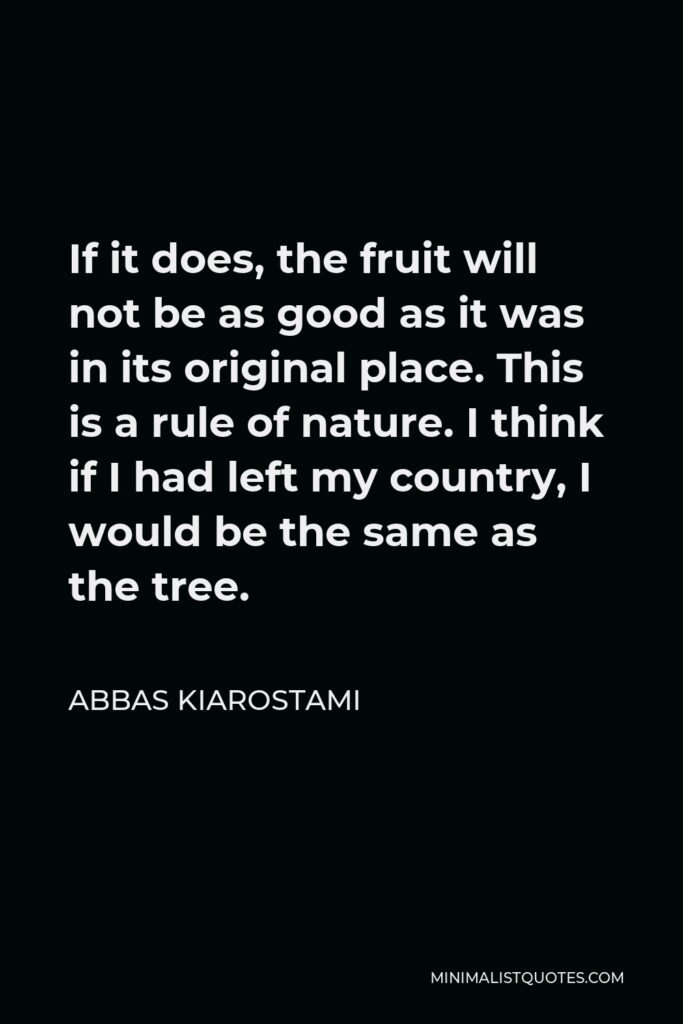

If it does, the fruit will not be as good as it was in its original place. This is a rule of nature. I think if I had left my country, I would be the same as the tree.
ABBAS KIAROSTAMI -





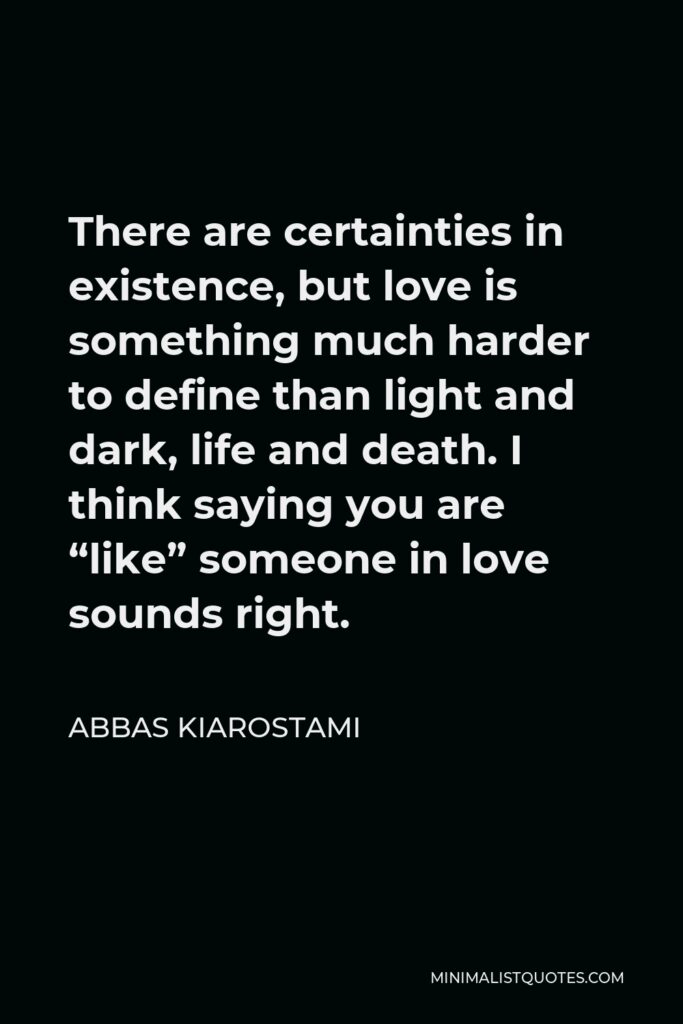

There are certainties in existence, but love is something much harder to define than light and dark, life and death. I think saying you are “like” someone in love sounds right.
ABBAS KIAROSTAMI -





![Abbas Kiarostami Quote - I am still very surprised that I managed to make that film [Close Up]. When I actually look back on that film, I really feel that I was not the director but instead just a member of the audience.](https://minimalistquotes.com/wp-content/uploads/2022/04/i-am-still-very-surprised-that-i-managed-to-make-t-683x1024.jpg)

I am still very surprised that I managed to make that film [Close Up]. When I actually look back on that film, I really feel that I was not the director but instead just a member of the audience.
ABBAS KIAROSTAMI -





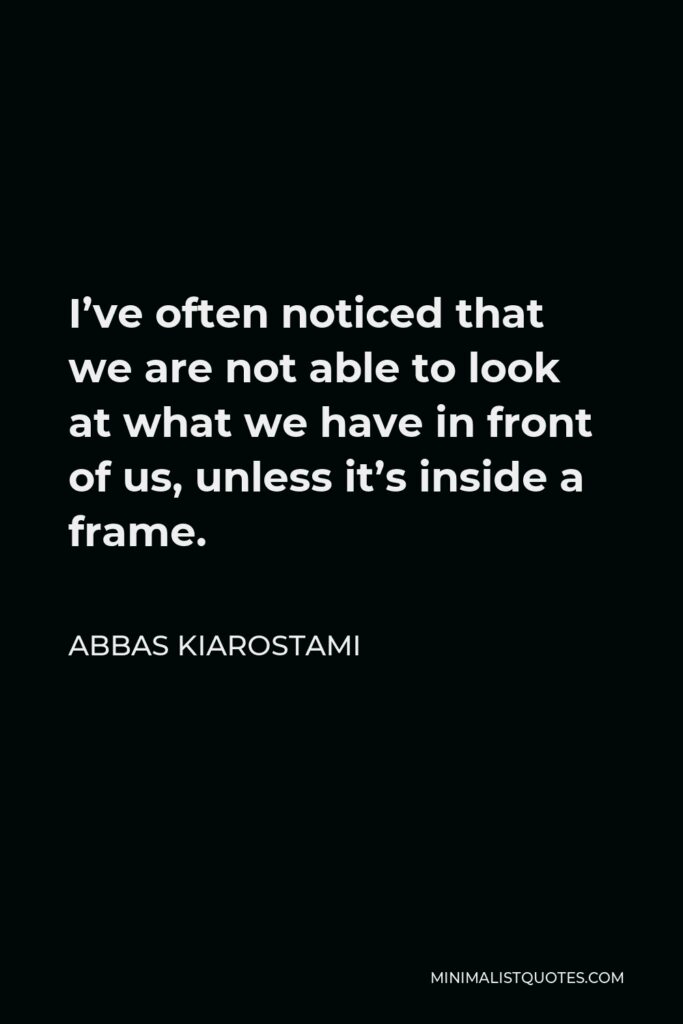

I’ve often noticed that we are not able to look at what we have in front of us, unless it’s inside a frame.
ABBAS KIAROSTAMI -





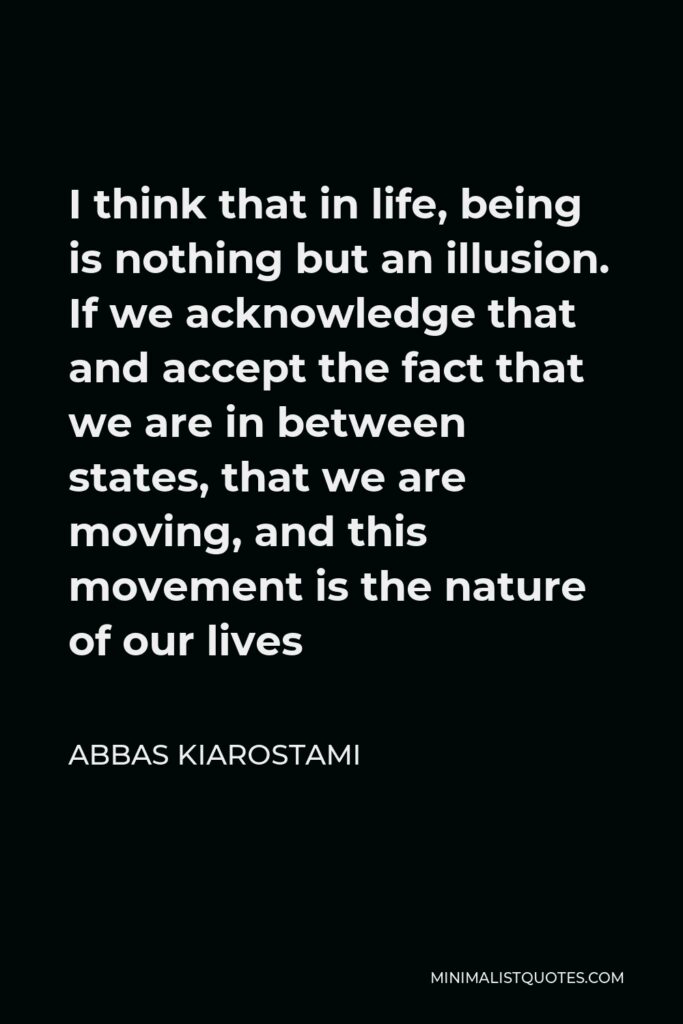

I think that in life, being is nothing but an illusion. If we acknowledge that and accept the fact that we are in between states, that we are moving, and this movement is the nature of our lives
ABBAS KIAROSTAMI
